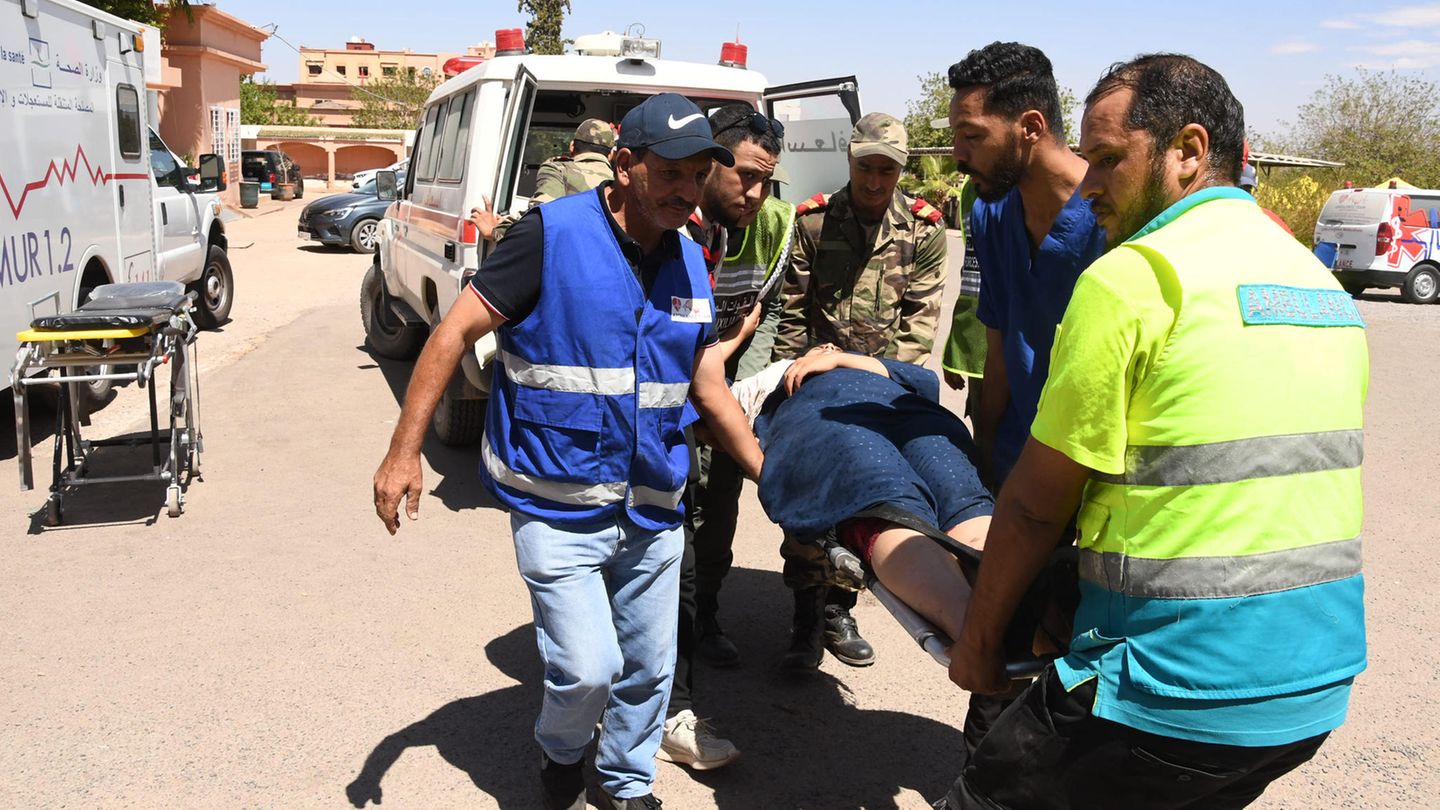To help those affected by the earthquake, many countries are offering help to Morocco – but the country is hardly responding. Is there political calculation behind it?
After the devastating earthquake at the weekend, Morocco has accepted offers of aid from only four countries: Spain, Qatar, Great Britain and the United Arab Emirates. The Moroccan Interior Ministry announced late on Sunday evening that it had so far only responded to offers of support from these “friendly countries.”
According to aid organizations, Morocco has not issued an international appeal for aid, as was the case in the hours after the severe earthquake in Turkey.
Spanish and British search and rescue teams have already begun operations in the earthquake areas. They are supporting local emergency services in affected areas, the Moroccan news agency MAP reported.
A Saudi search and rescue team is also expected to support the emergency services on site. Saudi Arabia has also ordered an airlift to deliver aid to Morocco. The two Arab countries have a traditionally friendly relationship.
Helpers sent home from Germany
Several other countries, including Germany, France, Turkey and Israel, as well as the African Union, had promised Morocco support – which the country did not respond to. German aid organizations such as the Technical Relief Agency have sent the employees they provided back home.
According to THW, emergency services had been standing by for a possible rescue operation since Saturday evening. More than 50 emergency services and several sniffer dogs had gathered near Cologne/Bonn Airport.
Fear and pray
State of emergency in Morocco – the desperate search for those buried continues
But they waited in vain for a request for help from Morocco. The aid organization ISAR Germany and the Federal Association of Rescue Dogs have also announced that they no longer expected their helpers on hand to be rescued in Morocco.
But why is Morocco rejecting the urgently needed help?
The FDP member of the Bundestag and chairman of the Maghreb parliamentary group, Carl-Julius Cronenberg, criticized Morocco for this in the “Tagesspiegel”: “The fact that Rabat has so far forgone German help is incomprehensible.” Now it shouldn’t be about misunderstood national pride, “but rather about the fastest and best possible help for the earthquake victims.”
Are differences with France the reason?
Particularly in France, a country with strong historical ties to Morocco, people are surprised at the lack of help. Are tensions between the two countries to blame?
The Maghreb expert Pierre Vermeren expressed the suspicion on French television that Morocco wanted to show with its rejection: We are independent of France. From 1912 to 1956, Morocco was a French protectorate, the country was placed under French influence and the French language was imposed on its residents. To this day, the relationship between the two countries fluctuates between historical differences and solidarity.
Morocco’s King Mohammed VI was even in Paris during the earthquake. According to the newspaper Le Parisien, he traveled to the French capital on September 1 for medical reasons, where he owns a 1,600 square meter townhouse on the Champ-de-Mars at the foot of the Eiffel Tower.
France’s Interior Minister Gérald Darmanin does not believe there are political reasons behind not accepting French aid. Morocco has good civil defense and is able to take control of the situation itself.
Million payment from France
Foreign Minister Catherine Colonna warned against creating a “false controversy” at a time when “people need help.” “Morocco is a sovereign country and it is up to it to organize the aid.” Although Rabat did not accept French help, it did not reject it either.
Colonna announced on French television on Monday that she was releasing five million euros for helping non-governmental organizations. According to the French Foreign Ministry, four French people were among the people who died in the earthquake.
Bad experiences with international aid
While France speculates whether Morocco is refusing aid due to political differences, other countries are even more unclear.
A possible explanation is that too many different teams would make coordination difficult. Moroccan authorities said they had carefully examined what was needed. A lack of coordination would be counterproductive. This also confirms the assessment of Christoph Johnen from the German Red Cross in the “Süddeutsche Zeitung”: “Many countries have had bad experiences with international aid.”
For example, some countries sent relief goods that were not requested or needed. It is therefore conceivable that Morocco is currently relying on local aid workers who already know the region and can better assess the needs. Morocco has left it open whether it will bring in other countries. The Interior Ministry said it would respond to further offers of assistance “if needs change.”
The 6.8 magnitude quake shook Morocco on Friday evening and there was an aftershock on Saturday. At least 2,497 people were killed and 2,476 injured. Hundreds are still missing.
Sources:, , ,
Source: Stern
I have been working in the news industry for over 6 years, first as a reporter and now as an editor. I have covered politics extensively, and my work has appeared in major newspapers and online news outlets around the world. In addition to my writing, I also contribute regularly to 24 Hours World.




